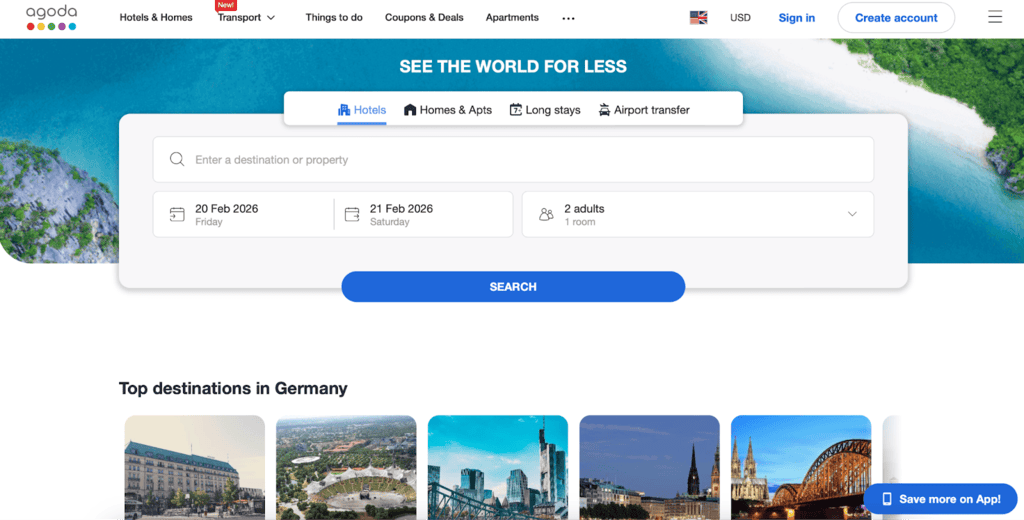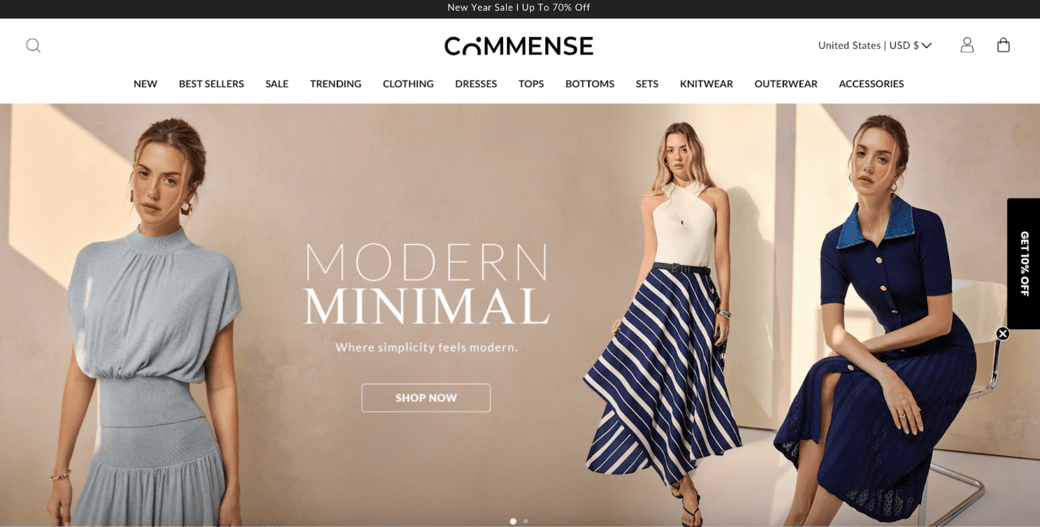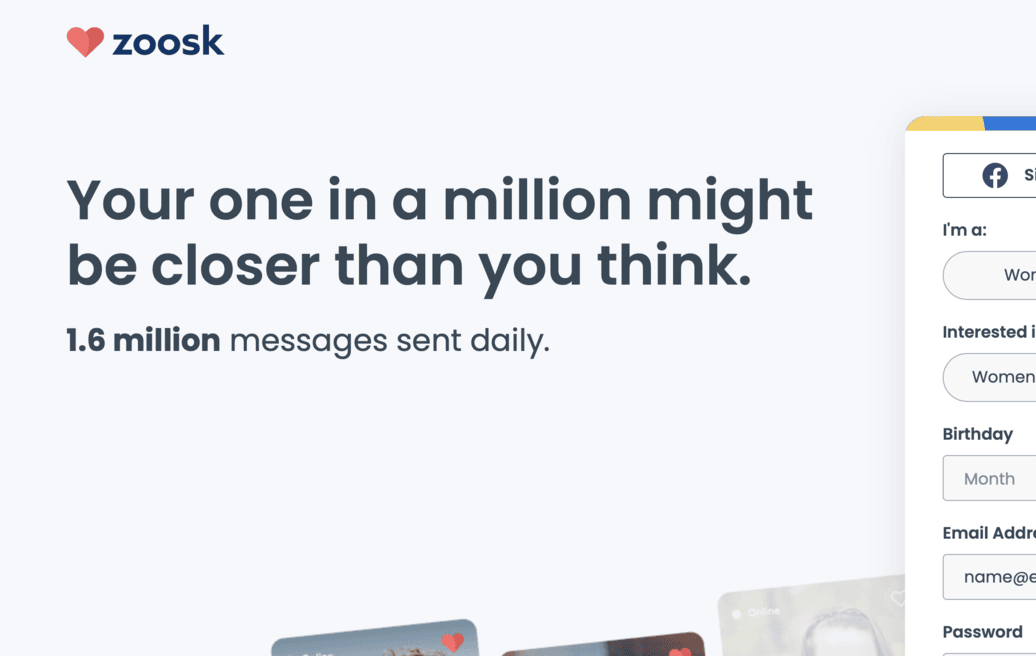Is Ticketmaster a Scam?
Laura Martisiute
Reading time: 8 minutes
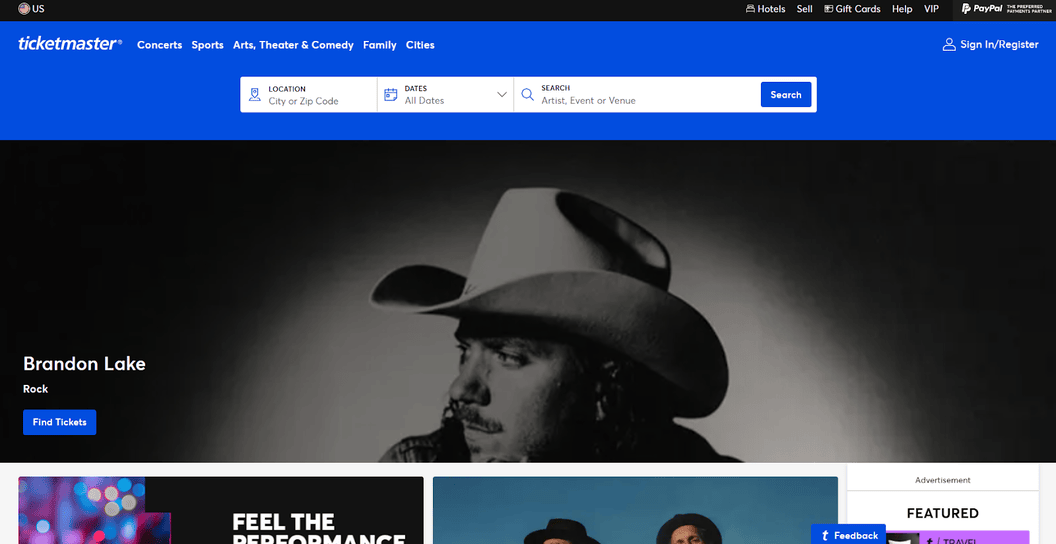
Table of Contents
If you’re thinking of using Ticketmaster, you need to know is Ticketmaster safe? Is Ticketmaster a scam?
Below, we explain whether Ticketmaster is a scam and discuss some steps you can take to improve your safety when using this ticket platform.
What Is Ticketmaster?
Ticketmaster is an online platform where you can purchase tickets for live entertainment events, including concerts, sports games, theater shows, and festivals.
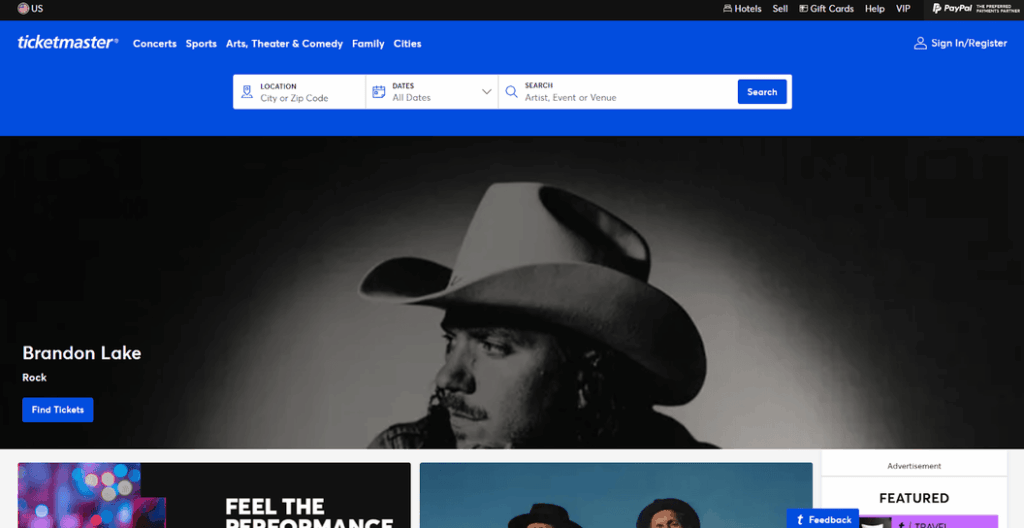
The platform sells tickets directly on behalf of venues, artists, sports teams, and event organizers.
It’s one of the largest ticket sellers worldwide.
Ticketmaster is a subsidiary of Live Nation Entertainment, formed after the 2010 merger of Live Nation (a concert promoter) and Ticketmaster.
Is Ticketmaster a Scam?
No, Ticketmaster is not a scam. It’s a legitimate ticket sales and distribution company.
The platform gets great reviews from third-party publications. For example, PCMag rated Ticketmaster 4.5 out of 5.0, which is “Outstanding,” though the review is from 2018.
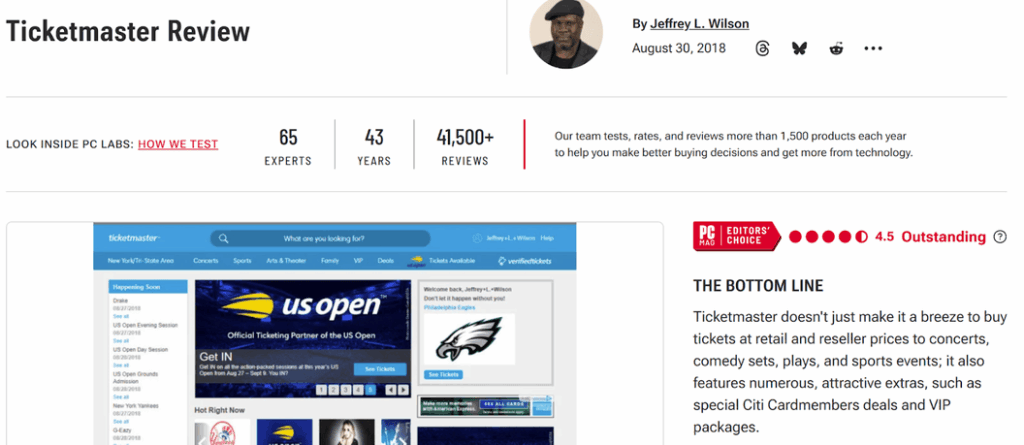
However, customer reviews of Ticketmaster are mixed:
- 3.8 out of 5.0 stars (from 81,031 reviews) on Trustpilot.
- 1.1 out of 5.0 stars (from 2,275) reviews) on Consumer Affairs.
- 2.8 out of 5.0 stars (from 108 reviews) on Yelp.
- 2.2 out of 5.0 stars (from 179,836 reviews) on Google Play.
- 4.8 out of 5.0 stars (from 3,597,612 reviews) on the App Store.
- 1.04 out of 5.0 stars (from 1,125 reviews) on Better Business Bureau.
People complain about customer service problems, misleading pricing and sales practices, refund and exchange issues, and technology and app failures.
On online forums, customers generally report negative experiences with Ticketmaster, particularly with their website.
Many people report that the site randomly crashes when they try to buy tickets (with technical failures during Taylor Swift’s “Eras Tour” in November 2022 probably being the most well-known example when countless fans waited in virtual queues, only to face system crashes and error messages).
One person said, “I honestly believe that their shitty website is deliberate. It’s so stressful and irritating that when you do finally get through, you’re so relieved that you end up paying whatever ridiculous price they’ve “dynamically” raised the ticket price to.”
Another described their experience with Ticketmaster’s deceptive pricing tactics, specifically dynamic pricing and urgency marketing.
They said: “I panic bought a pit ticket to the Rosemont show for over $300 shortly after release because they had that stupid “Last Chance GA” tag on there, so, being the dummy that I am, I thought I had to get a ticket fast or I would miss out on the pit altogether. Lo and behold, I check this morning and there is now Standard Admission pit tickets available for literally half the price.”
That said, people say that one positive of Ticketmaster is that you can be sure of ticket legitimacy.
As one user noted: “After 200+ concerts I have never had fake tickets with them. Can’t say that about the third party companies.”

Ticketmaster is not Better Business Bureau (BBB) accredited. It has received 10,693 complaints on the BBB website over the last three years, with 2,281 of these complaints closed within the last 12 months. (Read our review “Is BBB a Scam?”)
Dynamic pricing
Ticketmaster is often criticized for its use of “dynamic pricing,” which allows ticket prices to fluctuate in real-time according to demand.
This model has led to significant price increases during periods of high demand, with fans often facing prices that are much higher than initially advertised.
One recent high-profile incident involved tickets for Oasis’s reunion tour in the UK. The U.K.’s Competition and Markets Authority (CMA) has launched an investigation.
Antitrust allegations
In 2024, the U.S. Department of Justice filed an antitrust lawsuit against Ticketmaster and its parent company, Live Nation Entertainment, accusing them of operating an illegal monopoly in live event ticketing, which allegedly suppresses competition and inflates prices for consumers.

Security
We couldn’t find much information on Ticketmaster’s security controls.
In its privacy policy, Ticketmaster says that it has “security measures in place to protect your information” and that the measures they use “depend on the type of information collected.”

In May 2024, a hacking group claimed responsibility for breaching Ticketmaster’s cloud database and stealing the personal information of up to 560 million customers.
The stolen data reportedly included full names, addresses, phone numbers, email addresses, ticket purchase histories, and partial (encrypted) credit card information.
In 2018, malicious code implanted by a third-party chatbot provider compromised the personal and payment information of up to 40,000 Ticketmaster UK customers, exposing names, addresses, emails, phone numbers, and payment details.
Privacy
Ticketmaster explains the type of data it collects, why it collects it, and with whom it shares it in its privacy policy.
It collects the following information:
- Personal details: name, address, email, phone number, payment info.
- Purchase history: tickets bought, presales, and transfers.
- Device & usage data: IP address, cookies, browsing behavior, location (via GPS/WiFi).
- Social media & public posts: interactions with Ticketmaster online.
- Accessibility needs (if applicable).
- ID & tax info (for selling tickets).
- Health & safety info (e.g., in compliance with local laws for infectious diseases).
- Demographic & preference data (for marketing/personalization).
Ticketmaster uses this data to fulfill purchases and share with event partners.
It also uses it for marketing and personalization, security, fraud prevention, research and surveys, and health and safety compliance.
The company shares your data with event partners (e.g., artists, venues, promoters), Ticketmaster companies worldwide, third-party service providers (as listed in their privacy policy), commercial partners, law enforcement agencies, regulators, and business successors (in the event that Ticketmaster is sold or merged).
Ticketmaster keeps your data as long as your Ticketmaster account is active. Your data is deleted if you request deletion or if you are inactive for 7 years. Some data (e.g., for tax/legal purposes) may be retained for a longer period.
When your data is no longer needed, Ticketmaster either deletes or anonymizes it.
Data may be transferred outside your country (e.g., to the U.S. or U.K.).
You can:
- Opt out of receiving marketing communications.
- Update your preferences about Ticketmaster’s cookies and tracking tools.
- Opt out of location tracking and push notifications.
- Unsubscribe from fan feedback communications.
- Change your personalization settings.
Depending on where you live, you may also be able to exercise your privacy rights.
In its purchase policy, Ticketmaster states that by attending an event for which you have purchased tickets, you agree that your name, image, likeness, and actions can be recorded, used, and distributed for any purpose without compensation.
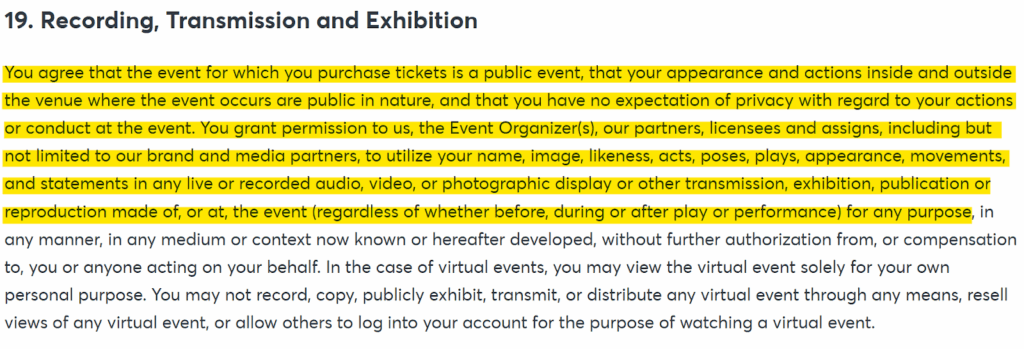
So, Should You Use Ticketmaster?
Well, in some cases, it may be your only option. That’s because Ticketmaster is often the only authorized seller for big-name events.
It’s also a good platform if you want guaranteed legitimate tickets.
On the other hand, it has faced criticism over price transparency and customer service, and it’s not the best for privacy.
Curious about other event ticket platforms? We’ve written guides for the following:
How to Use Ticketmaster Safely and Privately
- Avoid overpaying through dynamic pricing. Dynamic pricing can lead to panic buying, so consider setting a budget before entering the queue. Don’t fall for urgency labels like “Last Chance GA” as Ticketmaster uses them to push quick sales.
- Check back later. Sometimes more tickets are released, often at lower prices.
- Compare with the venue box office. For some events, purchasing tickets directly can help avoid additional fees.
- Avoid resellers if possible. Official resale can be much more expensive.
- Use a credit card. Credit cards give you stronger fraud protection than debit cards and other payment options.
- Turn on two-factor authentication (2FA). Ticketmaster allows you to protect your account and ticket with 2FA, so be sure to enable this option.
- Watch out for phishing emails. Scammers may pretend to be Ticketmaster. Never click on any links in emails or texts. Instead, always log in directly.
- Limit tracking and profiling. Turn off personalization in your Ticketmaster account settings, opt out of marketing emails & push notifications through your account preferences, and block cookies & trackers: Use your browser’s privacy settings or an extension (like uBlock Origin or Privacy Badger). Additionally, turn off location permissions in the Ticketmaster app (Android/iOS).
- Know the refund rules in advance. For example, postponed events often don’t qualify.
- Be aware that you may be recorded. By attending an event for which you purchased tickets, you agree that Ticketmaster/partners may use your image and likeness.
- Don’t post barcodes online. Screenshots of tickets can be stolen and used by scalpers.
Our privacy advisors:
- Continuously find and remove your sensitive data online
- Stop companies from selling your data – all year long
- Have removed 35M+ records
of personal data from the web
Save 10% on any individual and
family privacy plan
with code: BLOG10
news?
Don’t have the time?
DeleteMe is our premium privacy service that removes you from more than 750 data brokers like Whitepages, Spokeo, BeenVerified, plus many more.
Save 10% on DeleteMe when you use the code BLOG10.

